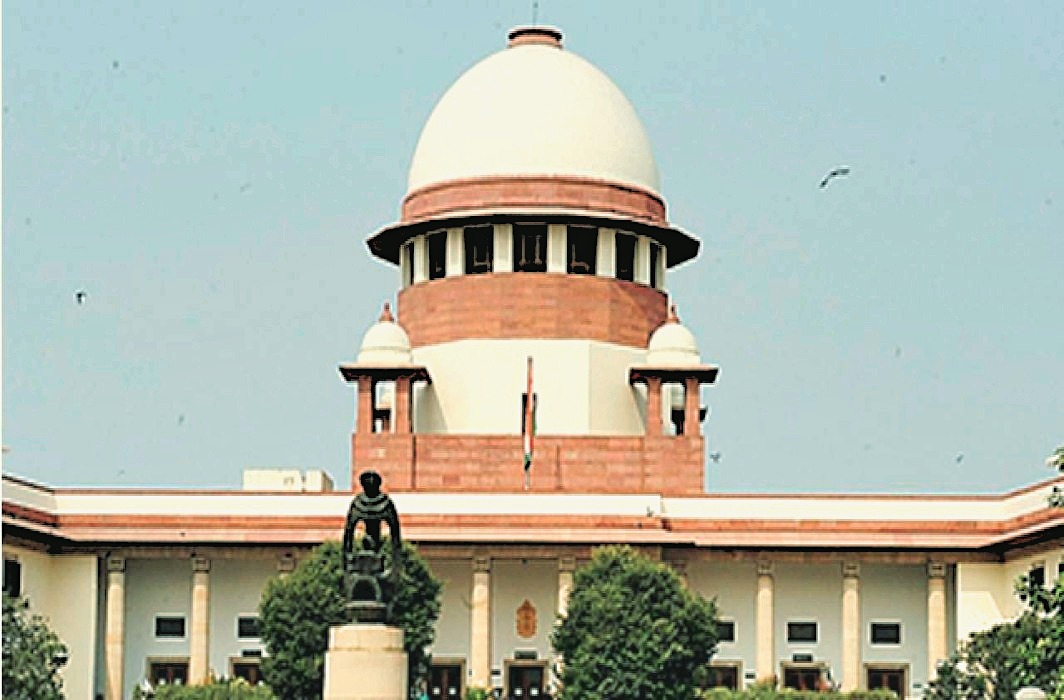Mandamus for formulations of regularization policy declared by State/Government is beyond power of judicial review of HCs under Article 226 of Constitution:SC

Read Judgment: Union of India & Ors vs. Ilmo Devi & Anr
Pankaj Bajpai
New Delhi, October 8, 2021: On the basis of settled proposition of law, the Supreme Court has reiterated that the regularization can be only as per the regularization policy declared by the State/Government and nobody can claim the regularization as a matter of right dehors the regularization policy.
A Division Bench of Justice M.R. Shah & Justice A.S. Bopanna observed that in absence of any sanctioned post and considering the fact that the respondents were serving as a contingent paid part-time Safai Karamcharies, even otherwise, they were not entitled for the benefit of regularization under the regularization policy dated June 30, 2014.
The observation came pursuant to appeals preferred by the Union of India challenging the judgment and order passed by the High Court of Punjab & Haryana, whereby it had modified the order passed by the Central Administrative Tribunal (CAT) and consequently directed the appellants to revisit the whole issue, complete the exercise to reformulate their regularization/ absorption policy and take a decision to sanction the posts in a phased manner.
The background of the case was that the respondents working as contingent paid part-time Sweepers (Safai Karamcharies working for less than five hours a day) in a Post Office at Chandigarh, approached the CAT seeking directions to frame a regularization/ absorption policy for regularization of their service, or in alternative, a direction for grant of temporary status w.e.f November 19, 1989.
This was opposed by the Department contending that the respondents (original applicants) were contingent paid Safaiwalas working for less than five hours and, therefore, they were not entitled for temporary status. It was further stated that there was no regular sanctioned post of Safaiwala in that particular Post Office in Chandigarh.
In the meanwhile, an Office Memorandum (O.M) dated December 11, 2006 was issued by the Ministry of Personnel, Public Grievances & Pensions (DoPT), Government of India by which regularization of qualified workers appointed against sanctioned posts in irregular manner was declared.
When the matter reached High Court, the appellants were directed to continue the employees in service with their current status but to those of them who had completed 20 years as part-time daily wagers were to be granted “minimum” basic pay of Group ‘D’ posts w.e.f April 1, 2015 and/ or the date of completion of 20 years contractual service, whichever was later, till finalization of regularization policy.
After considering the arguments, the Top Court noted that the respondents served as part-time employees and were contingent paid staff, and moreover, there were no sanctioned posts in the Post Office in which the respondents were working.
Therefore, the directions issued by the High Court were not permissible in the judicial review under Article 226 of the Constitution, as the High Court, in exercise of the power under Article 226, can neither issue a Mandamus to direct the Department to sanction and create the posts, nor can direct the Government and/or the Department to formulate a particular regularization policy, added the Top Court.
Speaking for the Division Bench, Justice Shah opined that the framing of any scheme and even creation and/or sanction of the posts, is no function of the Court and is the sole prerogative of the Government.
Even the regularization policy to regularize the services of the employees working on temporary status and/or casual labourers is a policy decision and in judicial review the Court cannot issue Mandamus and/or issue mandatory directions to do so, added the Bench.
Justice Shah went on to reiterate that part-time employees are not entitled to seek regularization as they are not working against any sanctioned post and there cannot be any permanent continuance of part-time temporary employees as held.
Also, part-time temporary employees in a Government run institution cannot claim parity in salary with regular employees of the Government on the principle of equal pay for equal work, added Justice Shah.
Therefore, the Apex Court quashed the judgment of the High Court and concluded that the part-time wagers, who are working for four to five hours a day cannot claim the parity with other Group ‘D’ posts.
Sign up for our weekly newsletter to stay up to date on our product, events featured blog, special offer and all of the exciting things that take place here at Legitquest.




Add a Comment